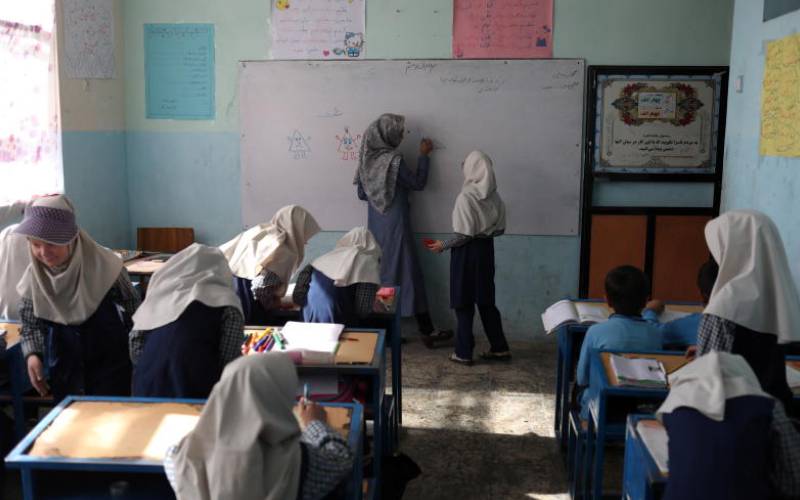×
The Standard e-Paper
Home To Bold Columnists

Cooped up at home in Herat, Afghanistan, Zainab Muhammadi reminisces about hanging out with her friends in the cafeteria after coding class. Now she logs on every day to secret online lessons.
Her school shut down after the Taliban took control of the country in August. But that did not stop Muhammadi from learning.